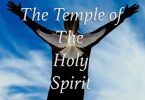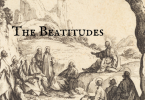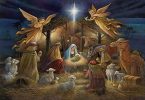28th Sunday of Ordinary Time
Scripture: Is. 25:6-10; Ps. 23:1-6; Philip. 4:12-14, 19-20; Mt. 22:1-14
This Sunday’s readings are written in the context of meal/banquet. The banquets are signs of enjoyment, happiness and fellowship in every culture. We do not have festivities without banquets. Israelites were no exception to this fact. The bible is loaded with so many references to banquets and feasts. Sometimes, they are used interchangeably. The bible tells us that banquets and feasts were known to be arranged for sealing friendships, relationship, treaties, celebrating events such as weddings (Mt. 25:10, Lk. 12:36, Jn. 2:8-9 and Rev. 19:9), birthdays (Gen. 40:20 and Mk. 6:21). They celebrated victories and joyful celebration with the meals.
The religious celebrations were also fashioned with the festive meals among the Israelites (2 Ch. 30:21-22; 2 Ch. 35:13; Zech. 7:6). The Israelites had several feasts, such as the Feast of Passover, Feast of Pentecost, Feast of Trumpets, Feast of Tabernacles, Feast of Lights and Feast of Purim. The banquet/meal played an important role in these celebrations. There were two important concepts dominated in the religious beliefs of the Hebrews.
Firstly, they believed that God dwelt on the mountain top. There are more than five hundred references given to the mountain in the bible. God lives in heaven (in the sky). The mountain top gave a natural setting for man to come closer to God. Among the mountains, Mt Sinai and Mt Zion were the most significant mountains for the people of Israel. God had given the ten commandments to Moses. He had made a covenant with the Israelites. Mt. Zion was another important mountain where they had the temple of Jerusalem. People offered sacrifices to God in the same temple. Secondly, they believed that God was pleased to have his portion of the offering. They believed God shared a meal with the people at every offering because He had entered into a personal relationship with them. The Hebrews had several offerings such as burnt offering, the grain offering, the peace offering, the sin offering and trespass offering. Each of these offerings had some portion of animal or fruit of the field. They offered it to God.
If they offered sacrifices to God, then He also offered a banquet for them. Prophet Isaiah talks to the people of Israel about the banquet on the Mt. Zion. There is so much of novelty in his talk about God. He says that God is inviting all people. The Israelites always felt that they were the chosen ones. They believed that they had the inherent right to participate in the banquet but God gives an invitation to all people. He is providing rich food and fine wines. He promises that he will destroy death forever. He will wipe every tear from every face. He will take away the shame of his people. Thus, the prophet tells the people of Israel that God is their hope and salvation. The same message echoes in today’s psalm. Although it is known to highlight a shepherd image of God. It also tells us that the Lord has also prepared a banquet in the sight of the enemies. God fills the cup of wine to the extent of overflowing.
In the Gospel, Jesus also gives two parables i.e. wedding banquet and the wedding garment, as his last resort to confront the chief priests and the Pharisees. It is a continuation from the last Sunday. We know Jesus is speaking in the temple. He had cleansed it. The group of chief priests and the Pharisees were questioning his authority. The parable of the wedding feast of the king’s son has a clear connotation that Jesus is talking about the eschatological banquet. God is fulfilling the prophecy of Isaiah (first reading) by inviting the gentiles to his banquet because the first invitees rejected His invitation for some lame excuses. The king’s persistence is seen in his two invitations. The two groups of servants are the former and the latter prophets. The expression of anger by the host is seen in inviting people from the street for the banquet and the destruction of the murderers and burning of the city. The reader can easily identify that Mathew is relating this parable to the existing reality i.e. the Romans had destroyed the temple of Jerusalem (70 AD). It was a consequence of rejecting Jesus, the Son of God.
We might get puzzled with the parable of garments. It is a fast forward judgement at the end of time. The king comes to see the guests from the streets. He singled out a man without a wedding garment. He punished him and threw him out of the celebration. It appears very strange and unjust. It is justifiable that he was called from the street. He was not prepared. We need to be aware of the culture of the time. The host often provided wedding garments to the guests. They were most likely given to all especially to those who were not prepared. It was done to bring honour to the wedding feast. There were many others who were called from the street. The others wore it but he did not. This was his fault.
Jesus invites us for the wedding feast even today. The Eucharistic celebration is the wedding feast. It is also pre-figuration of the Eschatological banquet. It is even recorded in the book of Revelation. St. John says, “the marriage of the lamb comes, and his bride has made herself ready (19:6-8). He further says, “Blessed are those who are invited to the marriage supper of the lamb.” (19:9). We are called to attend this wedding feast every day/Sunday. We need to be prepared for it.
We were told to be always ready for it when the minister puts on the white garment during the baptism. The minister said, “(Name)! You have become a new creation, and have clothed yourself in Christ. See in this white garment the outward sign of your Christian dignity. With your family and friends to help you by word and example, bring that dignity unstained into the everlasting life of heaven.” (Rite of baptism) Have we kept our Christian dignity unstained till this moment? Have we helped others by word and example? Have we done good confession before participating in the Holy Eucharist? Have we done corporal and spiritual works of mercy to be ready to participate in the Holy Eucharist in a meaningful way? Let us be like St. Paul who says today that he is doing anything anywhere with the help of Jesus to make his garments white for the wedding feast.






